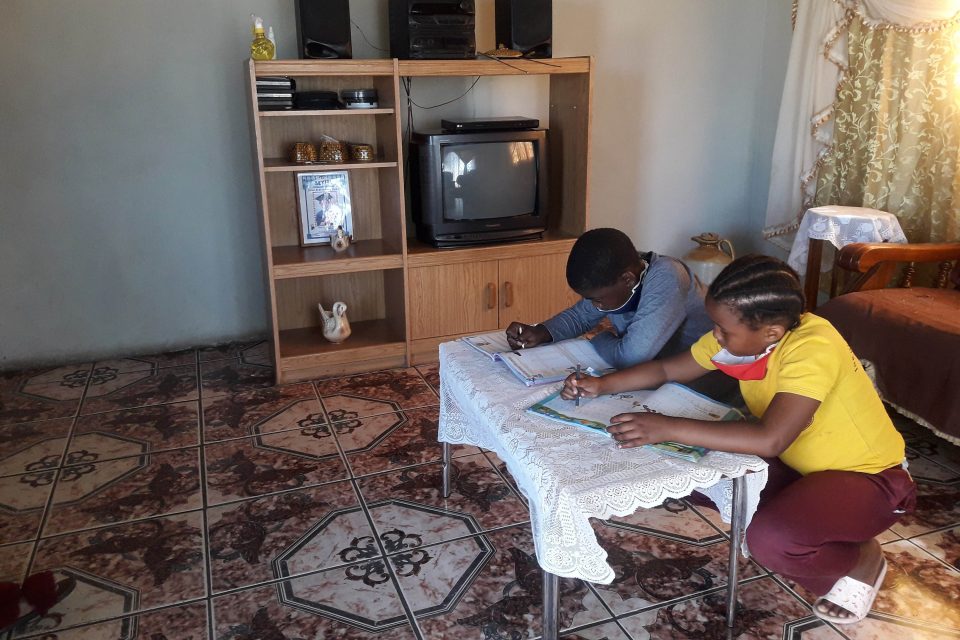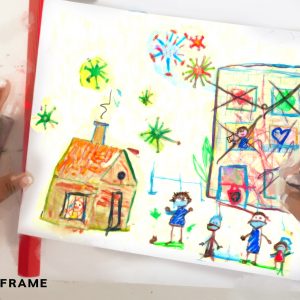The hardships of Eastern Cape homeschooling
Homeschooling should have been a good alternative for Inkqubela Primary School due to its debilitating infrastructure. But the costs and challenges of this route made it harder for parents.
Author:
1 December 2020

The recent surge in Covid-19 infections in the Eastern Cape has forced the province – like most places in the world – to adjust how it educates its children. But while those in charge figure out how best to do this, impoverished communities battle to manage with the limitations, regulations and expenses of homeschooling – a reality faced for multiple reasons including poor infrastructure and safety.
The Eastern Cape recorded high numbers of infections in schools in September and October this year. In the Joe Gqabi District, more than 300 learners were infected in 33 schools, with 102 of them coming from one high school.
Related article:
This has destabilised the normal functioning of education in the province. Some schools were forced to close for disinfection while learners quarantined in their homes. “There were challenges regarding compliance from schools,” said Eastern Cape Department of Health spokesperson Siyanda Manana. “Though the [personal protective equipment] was available, students were not always wearing masks and maintaining social distancing. We have since trained teachers in Covid-19 prevention and management. We are working with the education department in all districts.”
Taking matters into their own hands
As infection rates rose, some parents of learners at Inkqubela Primary School in KwaZakhele, Port Elizabeth, opted to educate their children at home. But they have found homeschooling challenging.
The Department of Basic Education made it mandatory for home educators to register before starting. Part of the regulations include the provision of a private tutor and registration at a private learning centre for children aged between seven and 15. The department also requires monthly progress worksheets, including a chart with hours of planned education for those using a private tutor or an education centre.
Related article:
To create a support network, a group of enthusiastic parents have organised themselves into the Eastern Cape Home Schooling Association (ECHSA), a non-profit organisation representing home educators in the province. The ECHSA is a hub for provincial home educators that helps to bridge the gap between home educators and the government.
“We are willing to provide the necessary information to the Inkqubela Primary School parents so that they can formally register with the [education department] and be members of the association. We want to unite all home educators as the department seems overwhelmed,” said Natascha Yazbec, the ECHSA’s vice president.
The struggle to educate at home
Although home education may be a convenient way to teach children safely during a pandemic, those without money have found it demanding.
“When we started home educating, we did so due to the poor conditions of the school. I would usually spend two hours doing schoolwork with my children. I use the [basic education department’s] learning manuals. After a while I found it hard to keep up because I couldn’t understand some of the work on the manuals. Sometimes my children don’t want to do the work. They lose focus every minute,” said Sondezwa Poyana, 47, a parent of two grade four learners from Inkqubela.
Poyana and other parents of more than 400 learners began home educating in August. In an attempt to lessen the burden of the work and to keep a record of their progress, teachers at Inkqubela sent parents messages on WhatsApp about which chapters the children needed to complete. The parents were expected to hand over the learning manuals to teachers at the school and await further instructions. “Learning at home was fun, but I missed school too,” said Poyana’s child, 10-year-old Luphelo. “Sometimes it’s hard to enjoy being at school because the toilets are filthy and they smell a lot.”

Even though no attempts had been made to repair Inkqubela’s crumbling infrastructure, classes resumed in November. “We decided to take the children back to school because parents were afraid the children would not be able to write their exams,” said chairperson of the school governing body Mkululi Hewu. “This decision was taken out of consideration of the children, even though the state of the school is worse than before. We have been putting pressure on the procurement office in charge of installing the fence. After weeks of communicating with him, he informed us that the fence will be ready within a month. Though we are not satisfied with the lengthy time frame of installing a simple fence, we will continue to put pressure on the Department of Education because there is a lot that still needs fixing at the school.”
Noxolo Jam, 45, the parent of a grade two learner, shared her hardships with home education. “It was very difficult to keep up with this curriculum. I struggled a lot and it was difficult for us to go to the teachers and ask them to explain to us parents some of the work and how to best assist our kids because the teachers had stopped going to school out of fear of being robbed,” she said.
“We heard that there were men who would hide in the school toilets. When teachers would enter, they would be robbed of their belongings. The state of the school is far worse now. People are just passing in and out even during lessons. They walk past classrooms, and my child said that they are disturbed by this. But home education for us is not an option, and I couldn’t even afford to buy extra learning material. This forced us to take our children back to this state.”
In a media briefing in October, Minister of Basic Education Angie Motsekga said the department had seen a decline in school attendance. “We are … concerned that there are learners who have not returned to school yet. In the schools that we have visited, the return rate is between 80% and 90%,” she said.


